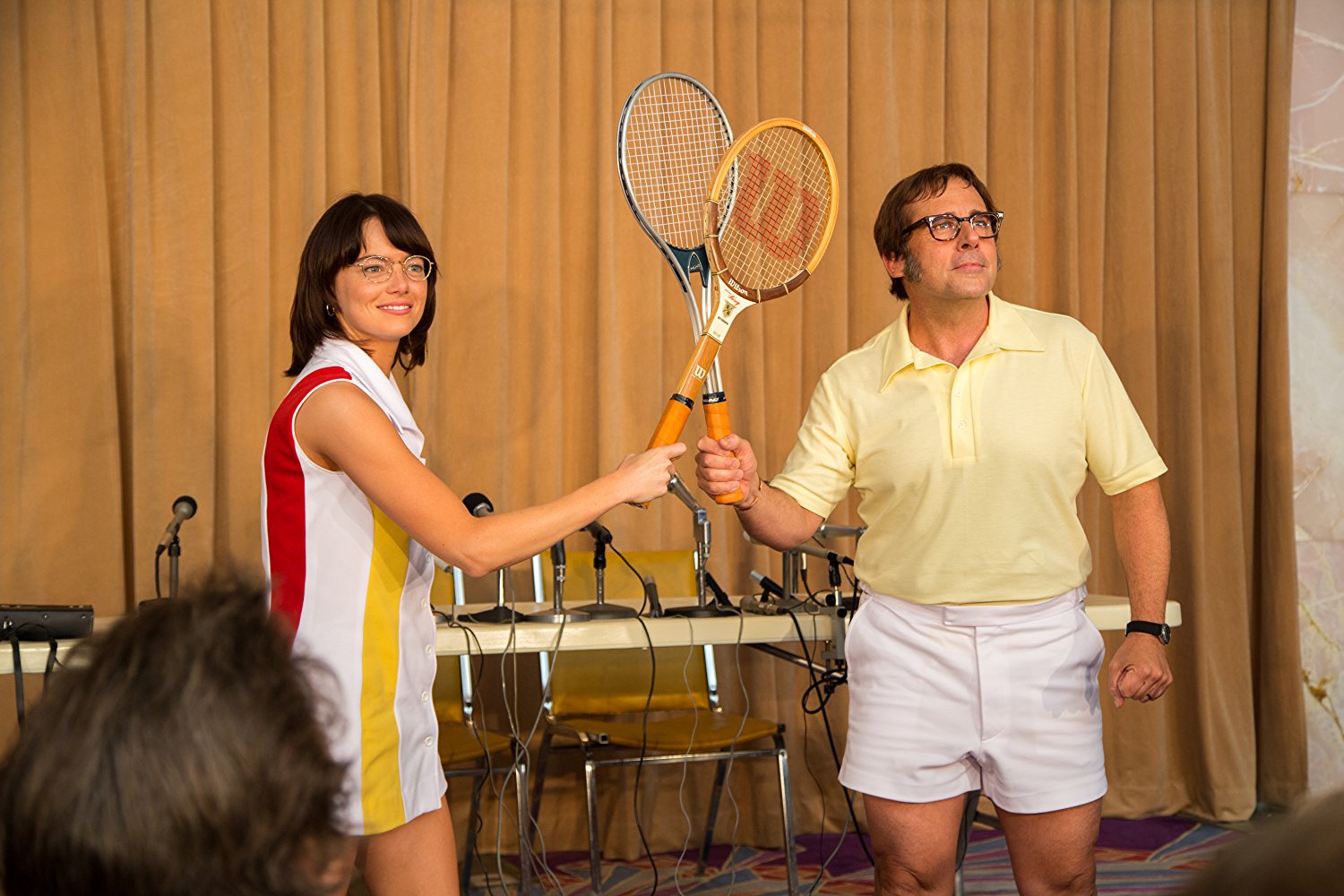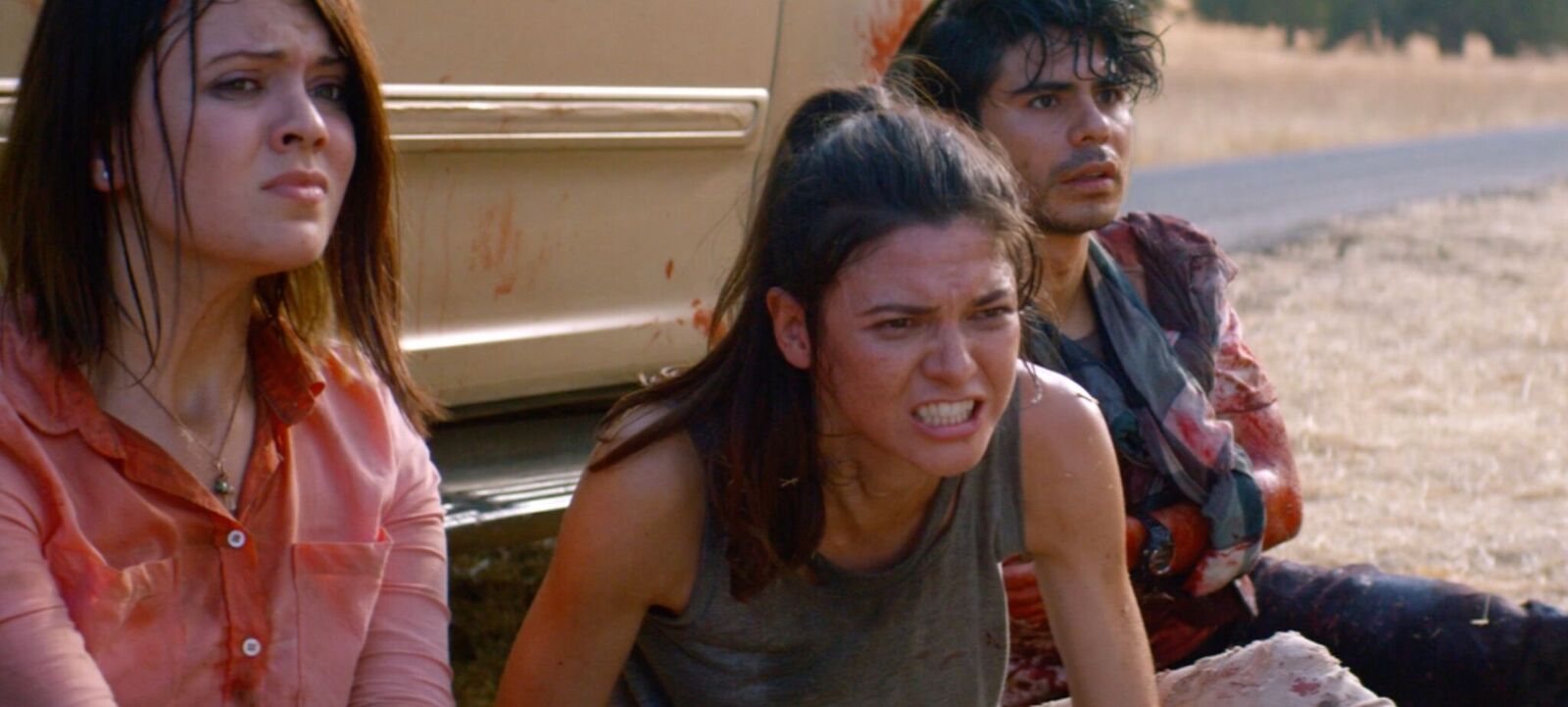The epic tennis match dubbed the Battle of the Sexes that took place in 1973 is an interesting but short story. The film Battle of the Sexes on the other hand, aims to provide a multilayered perspective on the state of tennis at the time, the lives of the two participants and the effects the match had on their lives leading up to it. In the early 1970s the women’s liberation movement was in full force and the demands of equal rights began to stretch into every corner of society. Women’s tennis was no different and Billie Jean King (Emma Stone), one of the sport’s top players, led the call by forming her own league with the best women tennis players in protest over unequal pay. She was also living a double life as a closeted lesbian while being one of the most well-known pro tennis players in a world that was not accepting of LGBT people.
Bobby Riggs (Steve Carell) is still considered a great tennis player, having placed in the World Number 1 spot three times over the course of his life, but he was also one of the most antagonistic. Throughout his 60 years of tennis playing, he became known as a hustler with a raging gambling addiction that necessitated ever more over-the-top scenarios to fulfill his debts. Riggs came up with the idea to exploit the hotbed of equal rights furor by holding a match between himself and some of the top women players at the time. He used misogynistic talking points and silly stunts to sell it to advertisers and the world and in September of 1973, he played Billie Jean King in one of the most watched tennis matches of all time.
Battle of the Sexes layers the stories of Billie Jean King discovering her sexuality, her struggle to get the Women’s Tennis Association off the ground, Bobby Riggs desperate attempts to pull off one last hustle, and the match between the two of them. At times, these stories seem unconnected as the match isn’t mentioned until at least an hour in, but the plot comes together in the end with only a few awkward bumps in the road. The film truly shines when its focus is on Billie Jean King, whose complex personal life was only revealed after her longtime lover outed her by attempting to sue for palimony in the 80s. The film is really a biopic for Billie Jean King, but because it frames the story around the tennis match it manages to avoid most of the cliché’s that have become so common in biographical films these days.
The acting in Battle of the Sexes is what elevates it well beyond the average sports film. Emma Stone gives a knockout performance as Billie Jean that is her best work so far. She embodies the determined spirit of a professional athlete and the fragile hope and fear of a person discovering the truth about themselves with equal skill. Steve Carell strikes a good balance between comedy and tragedy in the role of Bobby Riggs, a man who clearly has deep issues but manages to keep going through sheer force of will and the belief that the next hustle will be where he strikes it big. There are so many stars in this film it would be hard to give them all credit, but every one of them from Sarah Silverman as a chain-smoking agent to Elisabeth Shue as Riggs’s exhausted-but-patient wife is doing great work.
While it sticks very close to its source material, the film does have a few saccharine scenes that seem disingenuous, especially for those who are familiar with the more intimate details of Billie Jean’s life. Battle of the Sexes makes up for this by being utterly earnest in its message of self-acceptance and the power of the human desire to change the world for the better. The film immediately draws you in with gorgeous cinematography and even though the outcome of the tennis matches is well known, it still manages to achieve a sense of tension. Battle of the Sexes is an unconventional mix of a sports story, a biopic, and a queer drama that is a delightful example of how mainstream movies can break the mold and come out all the better for doing so.













